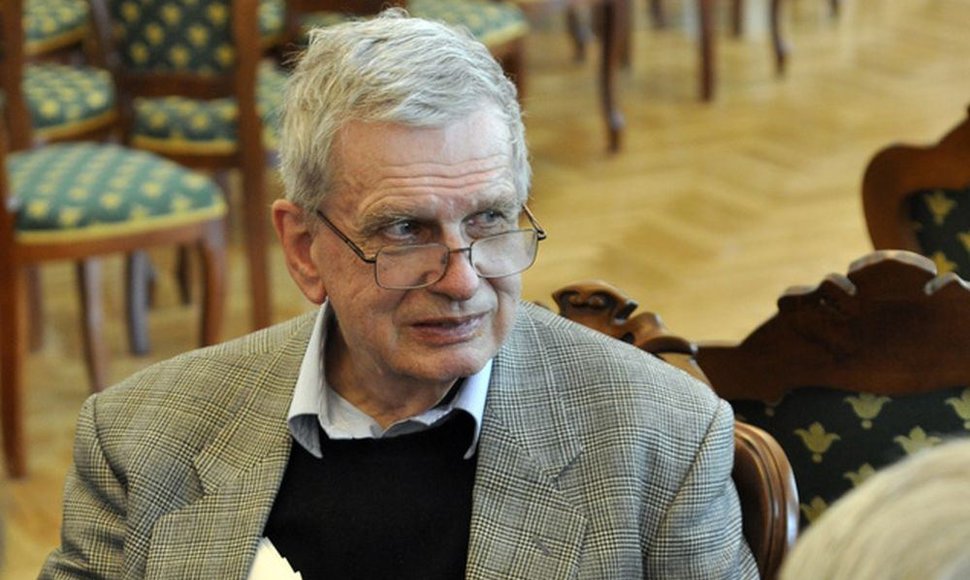In her address to Venclova, who left Vilnius for the United States during the Cold War, Grybauskaitė said he was "a man of the world who crossed the iron curtain during the occupation era and spoke up in the free world." She also said he made Lithuania, the country's culture and arts more popular internationally.
Degutienė, the parliamentary speaker, said the poet was a symbol of fair and open, high-cultured, and tolerant attitudes.
"Your name and the words you have written or said have long become vivid signs in the culture, history, and public life of Lithuania and beyond. You have always been a symbol of a fair and open, high-cultured and tolerant attitude. Ever since you started teaching at Vilnius University in the 1960s and later joined the Helsinki Group and chose life in the United States of America in the name of truth and freedom, your words have been saught and cited, they have become a firm cultural or moral prop and a true landmark of values," Degutienė said.
Born in the family of a prominent Soviet writer Antanas Venclova, Tomas Venclova never made compromise with the Soviet administration. He emigrated to the United States in the 1970s and has been teaching at Yale University since 1980.
On Tuesday, Venclova received an award by the Ministry of Culture for promoting cultural dialogue and humanistic values.
A special ministerial award in the form of a brooch was bestowed by the Minister of Culture, Arūnas Gelūnas.
The ministry said Venclova was awarded for his efforts to step up cultural dialogue and education of humanistic values.
"Even in this home, where many prominent cultural figures come on a regular basis, you will rarely meet such caliber of personality we're going to award," the minister said prior to the awards ceremony.
He thanked Venclova for his Socratic irony.
"I want to thank you for promoting Socratic irony. I don't think we have much of it in Lithuania," Gelūnas said.
After receiving the award, Venclova also spoke about Socrates. In his words, the confrontation between the societies and thinkers remained even in very good societies, not only totalitarian.
"They often say that a society, primarily totalitarian, is terrible and it kills poets, philosophers, musicians – whatever you say. The most interesting thing is that the Greek society of Socrates was among the best societies of the mankind, yet it killed Socrates," Venclova said after receiving the award.
The poet was congratulated by representatives of the President's Office, the parliament, the Polish Embassy and chairman of the Lithuanian Association of Writers Antanas A. Jonynas.


















